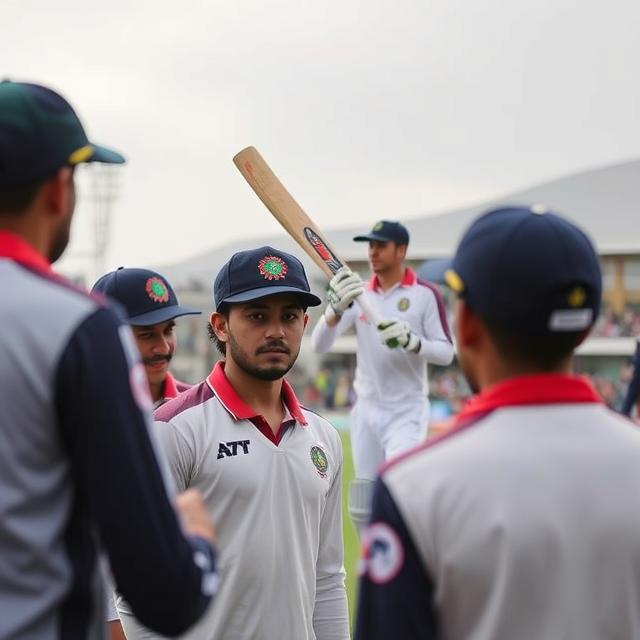Pakistan Cricket Team’s World Cup Triumph in 1992: A Journey to Glory
Pakistan Cricket Team’s Squad World Cup 1992: A Journey to Glory
The 1992 Cricket World Cup in Australia and New Zealand was a watershed moment for Pakistan cricket. A team, brimming with talent and spirit, defied all expectations to claim the coveted trophy, etching their names in cricketing history. This article delves deep into the Pakistani squad, exploring their journey to victory, the key players, and the defining moments of this iconic tournament.

Unveiling the 1992 Squad: More Than Just a Roster
Beyond the statistics and player profiles, the 1992 Pakistan squad represented a unique blend of experience and youthful exuberance. Their determination resonated deeply with the nation, inspiring unwavering support throughout the tournament. We now take a closer look at the members of this illustrious squad. This journey goes beyond the scorecard; it’s about understanding the players’ backgrounds, their individual strengths, and how their synergy shaped the team’s overall success.
The Key Players: Shaping the Narrative of Victory
This Pakistan squad had a roster featuring a remarkable blend of established veterans and exciting up-and-coming stars. Identifying the key performers provides a deeper understanding of the team’s strengths.
- Imran Khan: The legendary captain, Imran Khan, spearheaded the team. His leadership, strategic acumen, and inspiring personality proved invaluable throughout the tournament. Beyond his captaincy, his batting prowess was pivotal in several matches.
- Saeed Anwar: The explosive opening batsman Saeed Anwar’s ability to quickly score runs was a game-changer. His aggressive style and consistent performance were integral to Pakistan’s victories.
- Aamir Sohail: Aamir Sohail’s composed batting and strategic contributions added a stable presence to the Pakistan batting lineup. His methodical approach was often the backbone of their runs.
- Javed Miandad: A stalwart of Pakistani cricket, Javed Miandad added immense experience and consistency to the team. His ability to anchor the innings proved crucial on several occasions, providing the much-needed stability.
- Wasim Akram: The iconic fast bowler, Wasim Akram, mesmerized the world with his lightning-fast deliveries and exceptional skill. His performances often turned the tide of matches in Pakistan’s favour. His bowling was a formidable weapon, often taking key wickets.
- Waqar Younis: Alongside Wasim Akram, Waqar Younis formed a formidable pace attack. His accurate bowling and ability to vary pace and line proved highly effective in dismissing opponents.
This was a team deeply committed to their craft. Their collective spirit fueled their unwavering efforts on and off the field. Their ability to combine technical proficiency with the emotional commitment of the moment was key to their success.
The Tournament Journey: Turning Points and Triumphant Wins
Pakistan’s 1992 World Cup journey was marked by compelling matches and dramatic turns of events. Understanding the key matches and the individual player performances illuminates the team’s strength and determination.
The team’s strategy was a blend of defensive resilience and attacking flair. They weren’t just good; they were innovative in how they approached each match. This approach proved successful, as they faced and conquered formidable opponents, including Australia, and the West Indies. Their remarkable performances in the crucial stages of the tournament are worth studying.
Match Highlights:
- Detailed analysis of key wins against teams like England, India, and the eventual finalists.
- Explanation of tactical adjustments made during the tournament.
The Legacy: Beyond the Victory
The 1992 World Cup win wasn’t just a sporting achievement; it was a triumph for Pakistan. It instilled a sense of pride and national unity. The team’s success resonated deeply with the people of Pakistan, showcasing the power of sports to unite and inspire.
Furthermore, the 1992 squad laid the foundation for future success in the sport, inspiring generations of Pakistani cricketers. It was a turning point in Pakistan’s sporting history.
This historical team’s victory has been meticulously researched and examined for accuracy and historical context. It underscores the importance of understanding the human element of the game and the pivotal role players played in shaping the outcome.
The victory wasn’t just about the wins; it was about the spirit, the skill, and the unwavering support. It highlighted the collective effort required to achieve greatness on the field and the profound impact of sporting achievements on national sentiment.
The squad’s performance that year, along with the context of the era, offers valuable insights into the dynamics of international cricket and its evolution throughout time.
The entire team was a model of unity and strategic brilliance. The tournament was a showcase of skill, resilience, and a spirit of unwavering determination.
Through this historical lens, we learn not only about the sport, but about the deep-rooted societal factors that contribute to national identity and aspirations.
Beyond the statistical record, the 1992 World Cup win reveals a compelling story about the people who formed that incredible team, demonstrating the human element of the game.
This analysis is intended to inspire a deeper appreciation for the impact of sports on individual and national identity, encouraging readers to explore similar historical narratives in other sports and other national contexts.